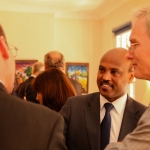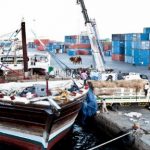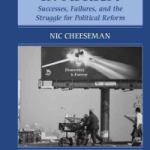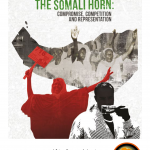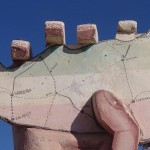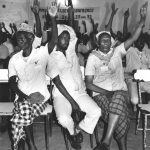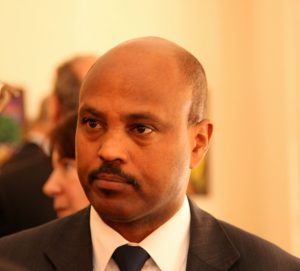 This speech was presented by Mohamed Omar at Africa Research Institute on 1st May 2013 to mark the launch of “After Borama: consensus, representation and parliament in Somaliland”.
This speech was presented by Mohamed Omar at Africa Research Institute on 1st May 2013 to mark the launch of “After Borama: consensus, representation and parliament in Somaliland”.
Thank you for giving me this opportunity to address this meeting about Somaliland.
The Borama Conference in 1993 was of critical importance for the future of our country. Broadly speaking, it had three major outcomes. First, it helped to establish a framework for managing security; second, it aided the definition of Somaliland’s political structures, which laid the foundations of an independent state; and third, it marked the transfer of power from the Somali National Movement to a civilian government.
The Transitional National Charter adopted at Borama reaffirmed Somaliland’s sovereign independence, a principle first proclaimed two years earlier at the Burco Grand Conference of the Northern Peoples.
In 2001, this decision was endorsed by a referendum in which the overwhelming majority of the population voted to maintain the country’s independence. Since then, the people of Somaliland have not wavered in their commitment to achieving international recognition of their status as an independent state.
The present government naturally shares this aspiration and has sought to advance the vision of an independent Somaliland which enjoys full international recognition. We have embarked on a process to achieve recognition through an incremental approach, by strengthening our governance, consolidating our democracy, reinforcing our security, and cooperating with other states, including both our neighbours and the major powers. President Silanyo’s recent visits to Ankara, Dubai, London and Washington are evidence of this.
Meanwhile, we have initiated talks with our neighbour Somalia in a historic departure from the policy adopted by previous Somaliland governments. Somaliland accepted the invitation to attend the London Conference on Somalia in February 2012, and our Parliament changed the law in order to permit President Silanyo to be present. We persuaded the UK as hosts to accept language in the final communiqué which recognised the need for the international community to support any dialogue that Somaliland and Somalia may agree in order to clarify their future relations. That in turn gave rise to the meetings at Chevening House and Dubai in June 2012, which launched the talks process. The meeting in Ankara on 13 April of this year saw the talks resume under Turkish facilitation, and we now plan a further meeting with Somalia in the next two to three months.
The dialogue with Somalia will focus in the short term on security cooperation. We hope that the agenda can then widen to cover a range of other matters including trade and investment. In the longer term it is our hope that the talks could provide a means by which the two countries can address the issue of political relations, and the associated constitutional questions. We are encouraging the wider international community to support the dialogue, as it provides a peaceful mechanism by which the concerned parties can build their on-going collaboration.
Unfortunately, we were unable to accept the invitation to attend next week’s London Conference on Somalia. Our absence is caused by the fact that Somalia will be a co-host of the meeting, and that, unlike the February 2012 Conference, the arrangements do not acknowledge the unique status of Somaliland. Attending the conference on such terms would compromise Somaliland’s position on international recognition, something that as a government we are not prepared to do.
If Borama marked a major step forward in consolidating our internal security, Somaliland has since focused on cooperating with external partners in combating the scourges of terrorism, piracy and jihadism. Like its neighbours, Somaliland is threatened by terrorism and jihadism, and we have worked with the USA, UK, Ethiopia and Djibouti amongst others to reduce this threat, in particular through intelligence sharing.
We have ensured that pirates are unable to use our country as a safe haven from which to launch their attacks. In February 2012, our Parliament supported a change in the law to permit convicted pirates to serve their sentences in our prisons. In the same month, we signed an agreement with the Seychelles providing for the transfer of such prisoners to our jails, and there are now around 30 pirates serving prison sentences in Somaliland as a result. Thanks to help from donors, the prisoners enjoy conditions that comply with international human rights norms.
In the wider region, Somaliland is becoming more integrated in economic, political and strategic terms. Djibouti and Ethiopia are no longer destinations for thousands of Somaliland refugees fleeing massacres in their homeland; they are now economic and security partners. Today, Somaliland looks to Djibouti for investment opportunities and cooperation in anti-piracy and other security initiatives. Ethiopia is a valued partner in the areas of immigration, counter-terrorism, education and trade, and Berbera is growing in importance as a major hub for Ethiopian imports and exports. Talks have been underway at senior official level covering these issues. Somaliland enjoys cordial relations with Kenya, and has also become more involved in the Intergovernmental Authority on Development (IGAD), where we seek observer status.
The transition to civilian government made possible by Boroma, and the new political structures which the conference agreed, also laid the foundations for a process of state-building in Somaliland. In 1993, democracy was more of a dream than a reality. After more than a decade of peaceful domestic politics, Somalilanders today are preparing to hold a sixth round of elections to choose their representatives at the presidential, parliamentary and local levels. All of the recent elections were monitored by international observers, and were found to be free and fair.
The provision of free universal primary education, the expansion of medical services and water distribution in both urban and rural areas, and the return of our diaspora in great numbers all testify to our achievements. Our government has no foreign debt, and our budget for 2013 of US$174m is the largest and most balanced in our history. The Somaliland Trust Fund, set up by the UK and Denmark, will give us a greater say in the way in which development assistance is spent in Somaliland.
The lack of international recognition of course negatively impacts lending and insurance provision, discouraging much needed foreign direct investment in our country. The government is nevertheless doing its utmost to provide a welcoming investment environment. We have passed an Islamic Banking Act, and important pieces of legislation on commercial banking and energy are making their way through parliament.
The USAID- and DFID-funded Investment Climate Unit, as well as recently having produced guidelines on business confidence, economic regulations and value-chain assessments, are helping foreign investors navigate our economy and connecting local business people to regional and global networks. Coca Cola’s opening of a US$17-million state-of-the-art bottling plant and the latest oil agreement with Norway’s DNO demonstrate investors’ confidence in Somaliland. The port of Berbera has the potential to become a strategic commercial hub both for Somalia and the region.
What all this shows is Somaliland functioning as a state, maintaining security within defined borders, delivering services to its people, while collaborating with neighbours and the wider international community to address regional challenges. That both helps our people in the short term, and legitimizes Somaliland’s claim to international recognition. I cannot say when Somaliland will be recognized, but I can say that its quest for recognition is legitimate on both political and legal grounds, and I am therefore confident that it will happen.
I would now like to turn to the question of eastern Somaliland. Sool, Sanaag and Togdheer have been a part of Somaliland since the time that our country was a British protectorate, and remained so after Somaliland joined the Union of Somalia from 1960 to 1991. Although Garowe asserts that these regions belong to Puntland, its claim has no legal or historical basis.
Moreover, the Somaliland government is the only administrative entity with the electoral mandate to govern, and with the capacity to maintain security, in the area.
Regrettably, there has been some localized conflict in the region. In some cases, outsiders with little popular support on the ground, such as Khaatumo, have fomented violence.
The government’s response to violence has been lawful and proportionate. No accusations of excessive use of force have been voiced by the international human rights organizations that monitor and visit our country, such as Amnesty International and Human Rights Watch; or by UNPOS, the UNDP-funded Observatory for Conflict and Violence Prevention or other international NGOs based in Somaliland that monitor and work in these regions.
Somaliland continues to put its faith in the localized traditional conflict resolution mechanisms that have kept our country peaceful for so long. Our government continues to engage with local elders and other stakeholders to address the root causes of our issues. For example, Saleban Haglatosiye, former leader of the SSC militia, recently chose to join the Somaliland government. Many other eastern politicians have been incorporated into the government as well.
Recognising that one of the underlying issues in the region is its relative poverty, and in particular access to land and water, the Somaliland Government has decided to focus more money this year on development projects in the east. National security agencies will also establish a presence there. Somaliland would welcome further support from donors for this region as well.
I would like to end by talking about Somalia. Somaliland has a strong interest in seeing stability restored in our neighbour, and we welcome the emergence of a more legitimate government under President Hasan Sheikh Mohamud. We would like to play a role in helping to stabilize Somalia further, including by sharing our experience of building peace and democracy in a Somali political context.
The international community should be realistic about the long and difficult road ahead for Somalia. Recent terrorist attacks in Mogadishu show how fragile the security situation is, even in the capital itself, and the government there is largely dependent on AMISOM for maintaining security in those areas which it nominally controls.
We understand why the international community is placing a lot of emphasis on ensuring that the new government receives the help which it requires in order to liquidate the threat from Al Shabaab, secure peace and stability, and build legitimate government institutions capable of delivering the services which the Somali people have lacked for more than two decades. At the same time, a strong Somalia cannot be achieved by neglecting Somaliland’s achievements and aspirations. Doing so would be an historic mistake, and could serve to undermine a country which has proved itself to be an area of relative tranquility in an otherwise unstable area. Any diversion of aid away from Somaliland would put at risk the value of the aid already delivered. The international community should support both Somaliland and Somalia.
It is understandable that the UN should look again at its arrangements for delivering aid to the region given the new government in Mogadishu. However, Somaliland is a separate country with quite different development needs. It is not acceptable to my government that decisions on aid to Somaliland should be taken by a UN structure based in Mogadishu, in consultation only with an entity which has no presence in my country and no control over our territory. We have made our views clear to the UN on this point.
It is equally unacceptable to Somaliland that Somalia should adopt a constitution which purports to lay claim to our territory, or that it should declare an Exclusive Economic Zone off our coast. I wrote to the President of the UN Security Council about these points, and emphasised that Somaliland reserved the right to declare its own Exclusive Economic Zone. Here I would remind you of the final paragraph in the Ankara Communiqué, in which Somaliland and Somalia agreed to refrain from any act which may put the continuation of the Dialogue at risk.
To conclude, Somaliland has come a long way in the 20 years which have passed since the Borama Conference. We have made considerable progress in the areas of state-building and democratisation. We have engaged with the international community, collaborating in efforts to defeat terrorism, jihadism, and piracy. We took the initiative to embark on a dialogue with Somalia, which offers a means whereby we can discuss our views on Somaliland’s political status. We will continue our efforts to achieve international recognition. We believe that the international community will come to realize that recognising our country will be an essential means of stabilising the Horn of Africa.
Thank you.







